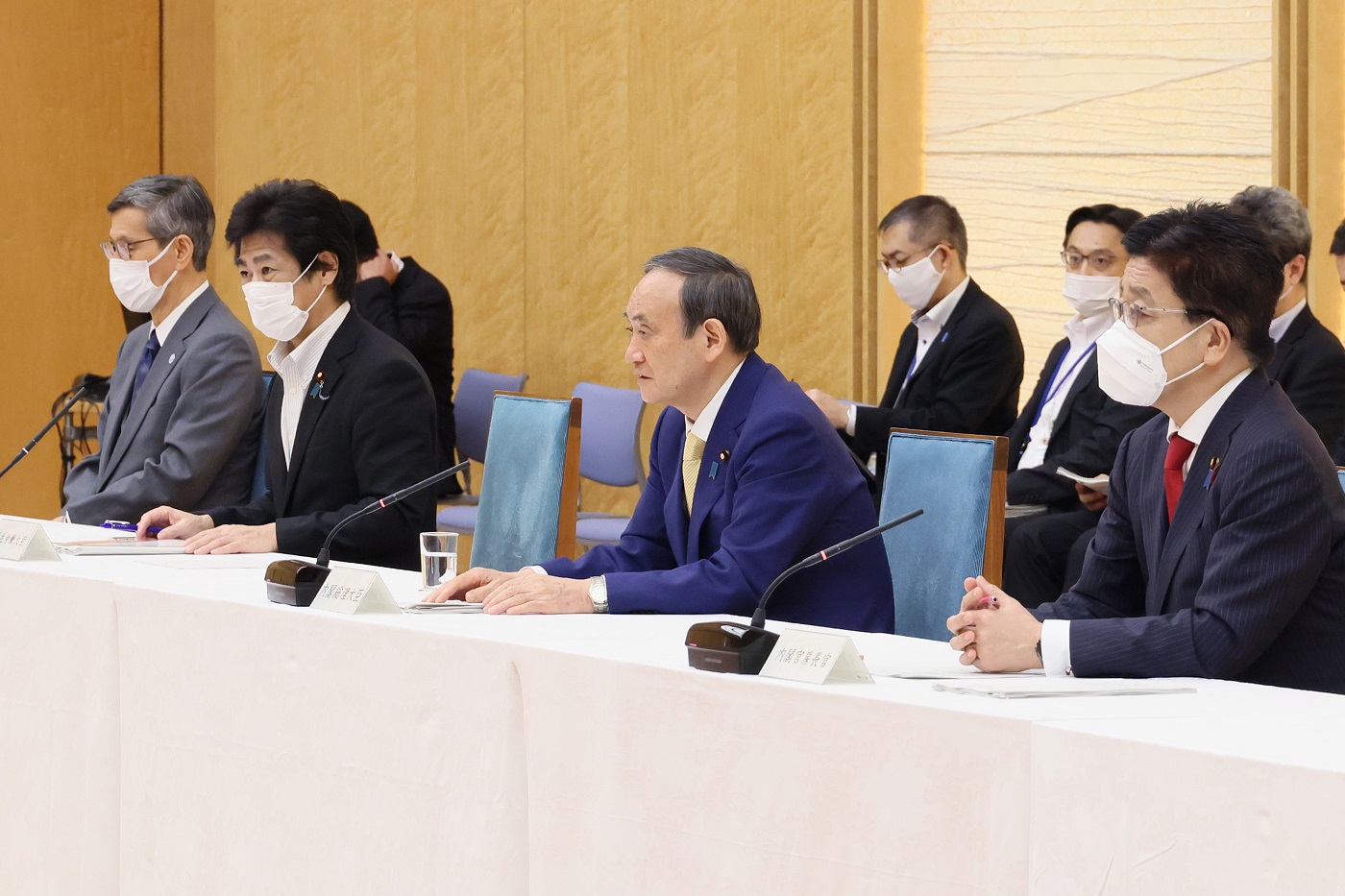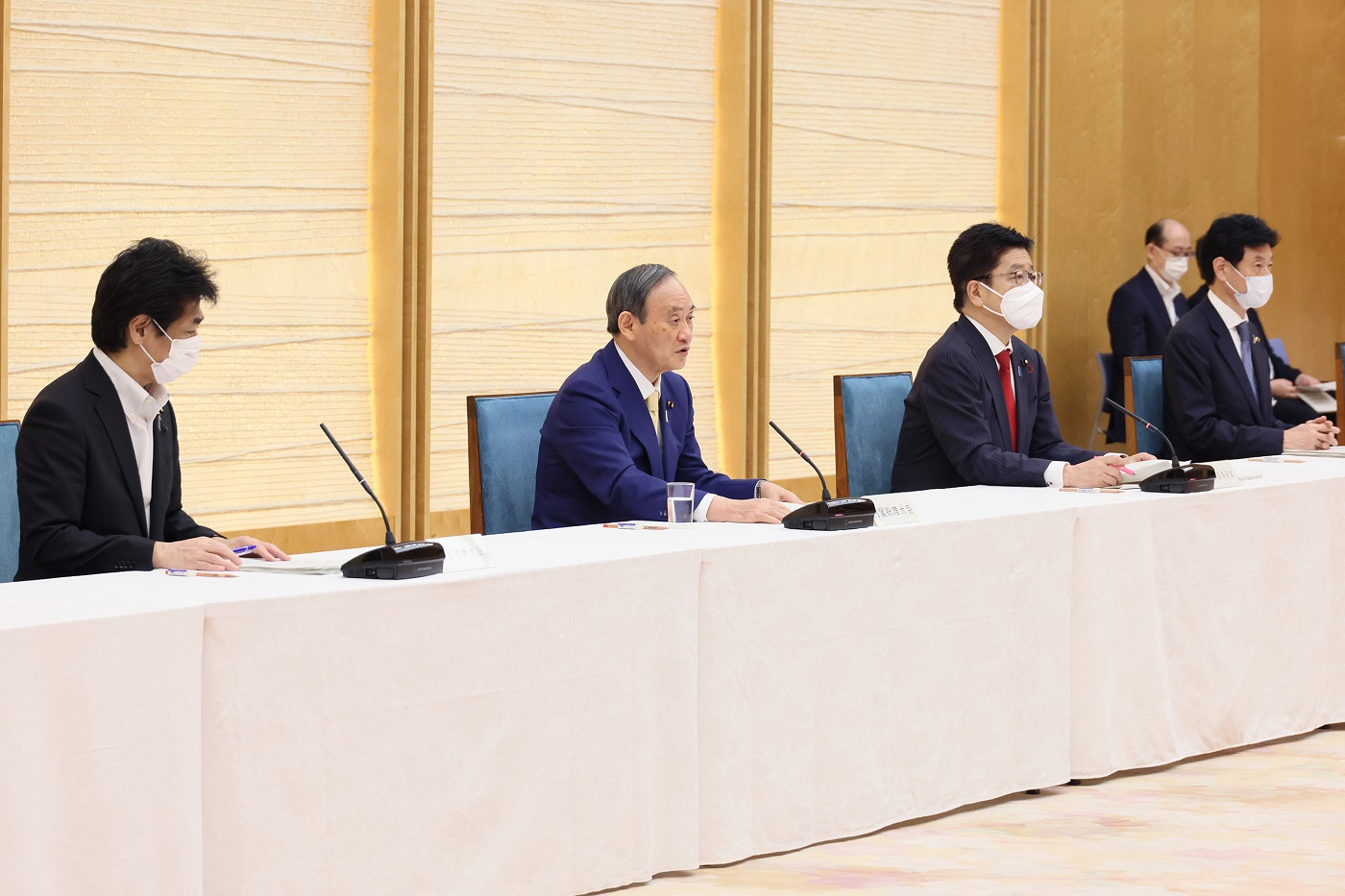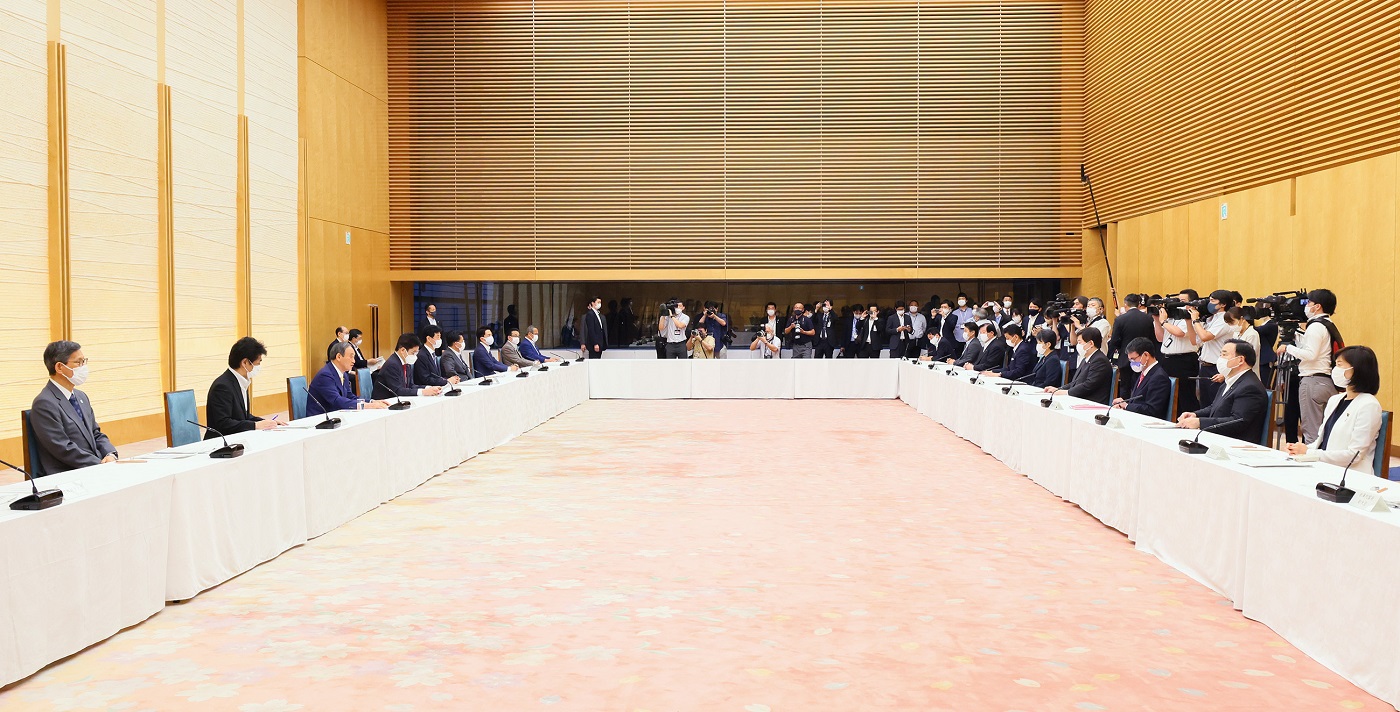Home > News > The Prime Minister in Action > July 2021 > 70th Meeting of the Novel Coronavirus Response Headquarters
The Prime Minister in Action
70th Meeting of the Novel Coronavirus Response Headquarters
July 8, 2021
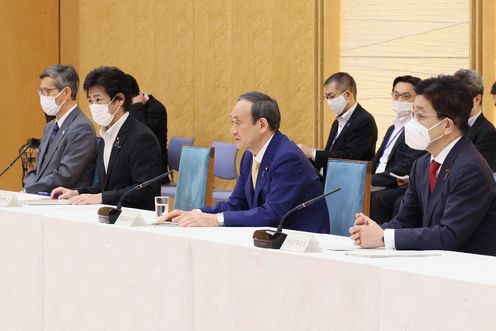
Photograph of the Prime Minister making a statement (1)
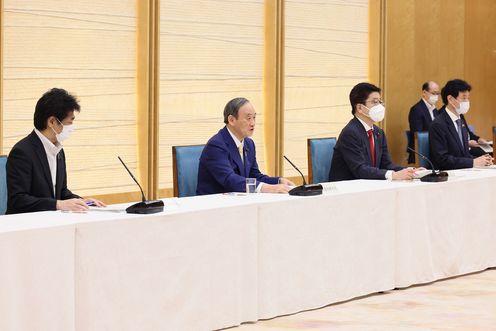
Photograph of the Prime Minister making a statement (2)
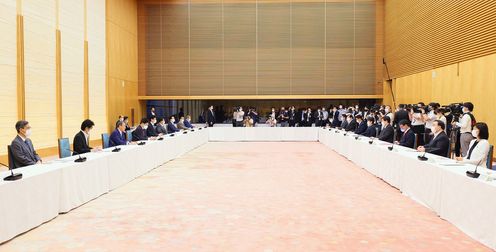
Photograph of the Prime Minister making a statement (3)
[Provisional Translation]
On July 8, 2021, the Prime Minister held the 70th meeting of the Novel Coronavirus Response Headquarters at the Prime Minister’s Office.
At the meeting, the participants discussed the response to the novel coronavirus disease (COVID-19).
Following the discussion, the Prime Minister said,
“The number of new infections has decreased in many parts of the country, but the Greater Tokyo Area, especially Tokyo, has seen a continuous rise of new cases since the end of last month. Although the number of patients with severe symptoms and the occupancy rate of hospital beds remain at a low level, we need to strengthen our response to prevent infections from spreading nationwide again, considering the impact of coronavirus variants.
In light of these circumstances, we decided to declare a state of emergency in Tokyo and extend the declaration in Okinawa Prefecture, both of which will be effective until August 22. It was also decided that we will extend priority measures to prevent the spread of disease in Saitama, Chiba, Kanagawa, and Osaka prefectures until August 22, while priority measures will end in Hokkaido, Aichi, Kyoto, Hyogo, and Fukuoka Prefectures on July 11. However, if we confirm clear effects of vaccines and improvement in hospital bed capacity and other factors, we will make decisions on whether to lift the declaration or priority measures earlier.
In areas subject to the declaration of the state of emergency, we will continue the existing countermeasures and suspend the serving of alcohol in dining and drinking establishments across the board. In principle, the suspension of serving alcohol will also apply to areas where priority measures are in place, depending on the situation of each area.
Meanwhile, vaccinations in Japan are proceeding at a speed unparalleled among developed countries, and the total number of doses administered has exceeded 54 million. About 70 percent of the elderly and about 30 percent of the total population have already received their first dose. Going forward, we will conduct reviews of vaccine supply and show local governments prospects for the number of vaccine doses for distribution as early as possible, so that we would deliver a greater number of vaccines to municipalities that have made strides in vaccination efforts to facilitate inoculations by local governments. We will also swiftly examine applications received for vaccinations at places such as companies and universities and adequately address the issue.
I ask each minister to collaborate closely in preventive measures against infection and vaccinations and make all-out efforts to work on these issues.”
On July 8, 2021, the Prime Minister held the 70th meeting of the Novel Coronavirus Response Headquarters at the Prime Minister’s Office.
At the meeting, the participants discussed the response to the novel coronavirus disease (COVID-19).
Following the discussion, the Prime Minister said,
“The number of new infections has decreased in many parts of the country, but the Greater Tokyo Area, especially Tokyo, has seen a continuous rise of new cases since the end of last month. Although the number of patients with severe symptoms and the occupancy rate of hospital beds remain at a low level, we need to strengthen our response to prevent infections from spreading nationwide again, considering the impact of coronavirus variants.
In light of these circumstances, we decided to declare a state of emergency in Tokyo and extend the declaration in Okinawa Prefecture, both of which will be effective until August 22. It was also decided that we will extend priority measures to prevent the spread of disease in Saitama, Chiba, Kanagawa, and Osaka prefectures until August 22, while priority measures will end in Hokkaido, Aichi, Kyoto, Hyogo, and Fukuoka Prefectures on July 11. However, if we confirm clear effects of vaccines and improvement in hospital bed capacity and other factors, we will make decisions on whether to lift the declaration or priority measures earlier.
In areas subject to the declaration of the state of emergency, we will continue the existing countermeasures and suspend the serving of alcohol in dining and drinking establishments across the board. In principle, the suspension of serving alcohol will also apply to areas where priority measures are in place, depending on the situation of each area.
Meanwhile, vaccinations in Japan are proceeding at a speed unparalleled among developed countries, and the total number of doses administered has exceeded 54 million. About 70 percent of the elderly and about 30 percent of the total population have already received their first dose. Going forward, we will conduct reviews of vaccine supply and show local governments prospects for the number of vaccine doses for distribution as early as possible, so that we would deliver a greater number of vaccines to municipalities that have made strides in vaccination efforts to facilitate inoculations by local governments. We will also swiftly examine applications received for vaccinations at places such as companies and universities and adequately address the issue.
I ask each minister to collaborate closely in preventive measures against infection and vaccinations and make all-out efforts to work on these issues.”

